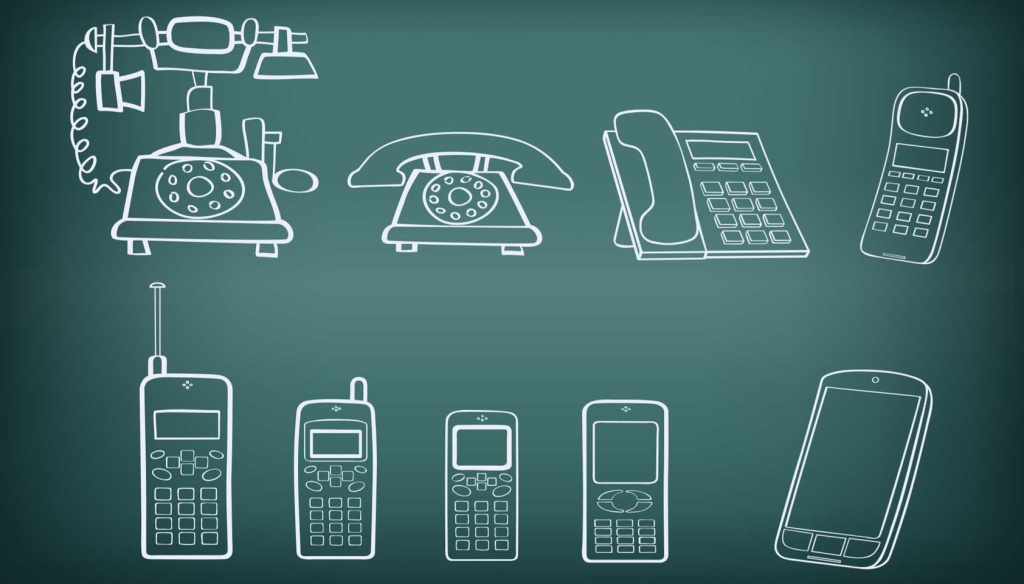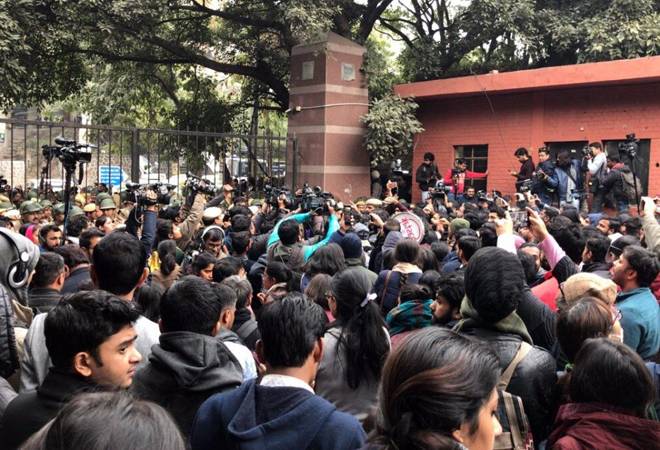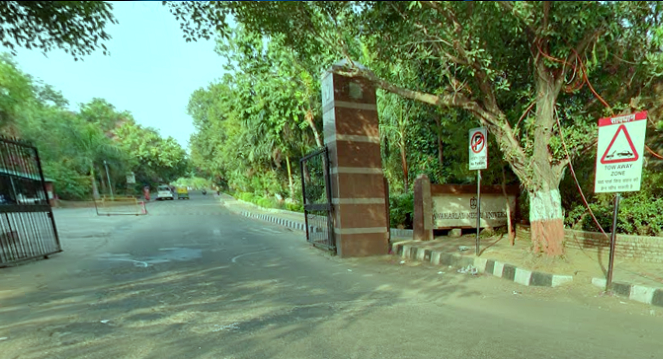Telecommunications have brought a massive change in the way in which we interact, communicate and express ourselves. Here the author takes us on a journey of personal narratives about how the telephone meant different things to her at various stages of her life and what it would mean to live without them it, a change.
Ankita Chatterjee pursuing her Doctorate Program at JNU, New Delhi.
I was born at a time when the technology of communication was changing slowly followed by the sudden boom of portable devices that took place in the last decade. I want to give an autoethnographic understanding of these technologies of communication and how my perception was shaped by the introduction and changes in the modes of communication throughout my childhood days until now. I clearly remember the first time when the phone came into our life. It was a handset kept in the living room, at the side of a sofa on a small table. The table was broken at the corner so Ma took out a small tablecloth to cover it. The wire that was connected from our room to the outside world made me realize that it was possible to contact distant people within seconds.

The understanding of the length of the wire was similar to the awe experienced by watching the never-ending handkerchiefs that came out of the pocket of a magician during a show in our locality. The first time the handset came to our house was a time for celebration as my father called up his parents and wanted the first call to come from them. This was considered auspicious. The handset also enhanced our sense of security as it gave us a medium to call someone during times of emergency and ma could easily keep us in the house and go out for a few hours during our holidays. The phone becomes the center of attention and initially, the ringing sound always caught our attention when my sister and I sat down to study. From invitation to social gathering to family feuds, we have seen so many incidents unfolding through the receiver of the phone.
During the last years of the school, I saw many schoolmates possessing a portable device, the mobile phones. I did not have those mobile phones in schools so had to contact friends from our telephones, not that I had many. My sister and I had a stipulated time to return home from school that was stretched to an hour in case we face conveyance problems. Otherwise, we always returned home on time. I got a basic cell phone when I was in college and used it mostly to call and message people. Gradually the calls started coming from friends and late night discussions ensued with free call rates at night. It felt better to hide somewhere or go to the backyard, away from the prying ears of my parents and talk to my friends.
At that time the messages and the calls were mostly through which I engaged with the device but its portability changed the way of communication and privacy experienced even in the outside spaces. With time, the model changed and there were new features, and smartphones changed the very way I started using a phone. It was not a phone but a world map that was given to me and I could virtually travel from one site to another and use for it various purposes. The bus journeys ceased to be tedious as I could see the rush of the people outside with a solemn song about the trajectory of lives or cry at times listening to the songs about unrequited love. The newer handsets promised more applications and I saw people around me rushing for the newer models.
The gap between the old and the introduction of new models became reduced and there was always a dissatisfaction that the ones we are buying will be of no use. It created new desires that are directed to the future and the present became a platform to stay put with the existent one until something fascinating comes out. Recently I went home and was clearing the cupboard where my sister and I kept our old stuff. I came across all the old cell phones, there were four or five of them, some of them with cracked screens, and some tossed aside just because they were considered outdated. I realized that there are many cell phones that are used and discarded without thinking about the large scale of electronic waste that the world has to deal with in future. It will be full of discarded handsets and some of the traces of the materials will be found even after life ceases on the planet.
I went to the place where the telephone was kept. It is still there for emergency purposes but has lost its importance with time. It lies there as an extra medium of communication and cell phones have become important in everyone’s life. It has become an antique piece that has lost its significance and hence our relations with it have also changed. As MacLuhan was of the opinion, that media is the extension of man, his prosthetic self in the 1960. The phones have become an extension of the self with the various images of us and the surroundings taken. The externalization of the memory takes place and it seems that we have kept the most important aspects of our lives like the memory, our personal information and others on phone, hence it becomes difficult to part with them. I have tried not to be dependent on my phone but it seems that in the information society everything right from keeping important details and contact numbers to the booking of a cab, to finding out the places and location is done through smartphones.

It becomes difficult to even think of a day without the phone as the availability of a person at any moment is taken for granted. The phone gives a sense of security to be connected with our people at any instance and see something familiar when ontological insecurity has gripped us with migration and precarity of jobs, estrangement and alienation.As I left home to pursue my higher studies, the cell phone became the only medium through which I could keep in touch with my family. Their messages everyday kept me going. I wondered how our earlier generation felt when they came to distant lands knowing that it would take long to meet their family. They did not have cell phones to connect instantly with their near ones. The phone became a link to my home. The academic world has also taught me many things with the use of cell phones.
The constant emailing made me use a smartphone from which I could respond to emails. The obligation to respond and to increase my connectivity with other scholars came with both its advantages and disadvantages. The constant association with the screen made me anxious for information. Even while reading I have to go through the screen of my phones to see any messages or calls and there is a perpetual expectation of receiving calls or messages anytime. My experiences with smartphones have been bitter and sweet. While it has given me the opportunity to be close to people, it has also taken away the encounters with the real life and replaced it with the virtual life. I always think what it would be like to spend a few days without the internet if there is a possibility.
I try to stay away from social media sites but at times I see myself going to these sites unknowingly and I do not notice the difference when I go from the offline to the online world. The viewing becomes personalized and individualized with our relation to the screens and hence deprive us from the collective action of viewing. The future of the technologies of communication comes with infinite possibilities as long as we are cautious about its correct and appropriate usage and do not become obsessively addicted to it.
The New Leam has no external source of funding. For retaining its uniqueness, its high quality, its distinctive philosophy we wish to reduce the degree of dependence on corporate funding. We believe that if individuals like you come forward and SUPPORT THIS ENDEAVOR can make the magazine self-reliant in a very innovative way.














